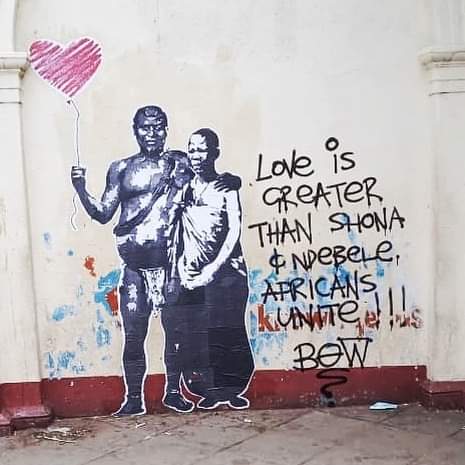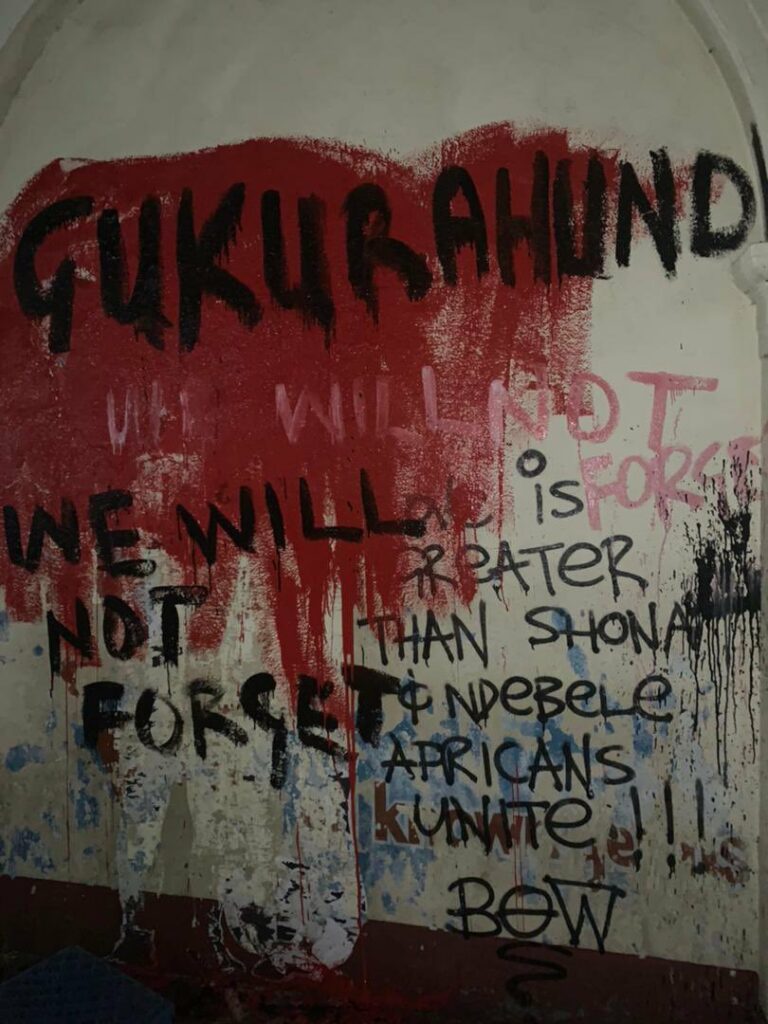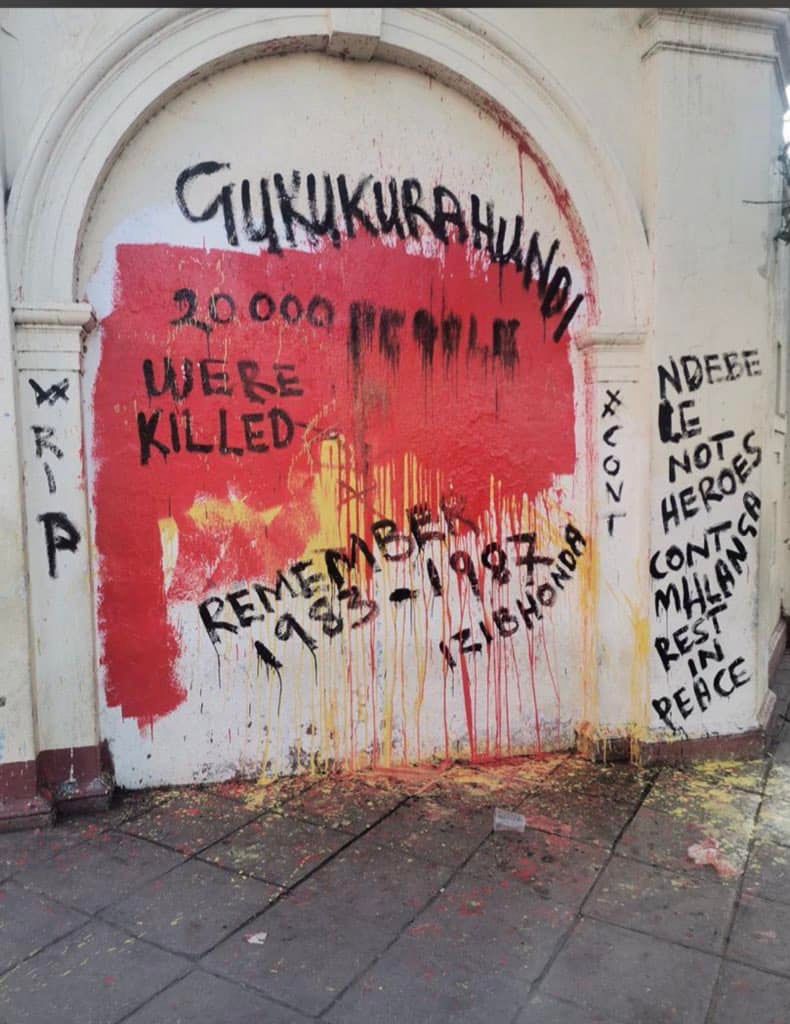The resurfacing of Gukurahundi graffiti emblazoned on the walls of the City Hall in Bulawayo is a sign and testimony that Gukurahundi wounds are still festering and something needs to be done as a matter of urgency, Political analysts have noted.
In January, graffiti showing King Lobhengula Khumalo intimately holding spirit medium Nehanda Charwe Nyakasikana was painted on the same spot drawing mixed reactions.

After it was removed by council officials, it was ‘replaced’ by another graffiti which read, “Gukurahundi- We will never forget”.

Over the weekend another one surfaced on the same spot with a caption, “Gukurahundi 20 000 people were killed. Remember 1983-1987 Izibhonda.”

Speaking to CITE, Mkhululi Tshuma a political analyst said the graffiti is a simple lamentation urging the government to address and bring closure to the issue of Gukurahundi.
“Government has never been sincere in bringing closure to this emotive subject. The few half-hearted motions supposedly to address this issue have been swallowed up in populism and electioneering. Such graffiti is testimony that in some place somewhere, Gukurahundi wounds are still festering and something needs to be done as a matter of urgency,” said Tshuma.
He said the lame-duck beliefs by some in government that ignoring this heinous piece of history will lead to it dying a natural death are regrettable and will never achieve the desired effect.
“On the contrary, this piece of history keeps being passed from one generation to the other, and like uranium, it keeps being enriched more with each generational transfer. The graffiti is thus a simple lamentation urging the government to address and bring closure to the issue. It’s a call for the government to stop burying its head in sand regarding this heinous episode of the nation’s history,” he said.
Tshuma said if this matter is not addressed to the satisfaction of the victims, the protests will continue.
Another political analyst, Effie Ncube said the artists are highlighting the importance of addressing the Gukurahundi genocide.
“I think the issue is that the Gukurahundi issue is a present and piercing concern for the majority of people and that is why they keep on highlighting its importance because graffiti is one of the ways through which people communicate,” said Ncube.
Meanwhile, a media scholar, Dr Mphathisi Ndlovu said the artist as a representative of the subordinated groups is using graffiti to creatively circumvent authoritarianism.
“Memories of Gukurahundi are repressed in the public domain, people keep painting the same message as a way of expressing dissent,” he said.
Ndlovu said the artist is using the same place possibly because street art or protest art is akin to ‘poaching raids’ or ‘guerrilla’ tactics as there is an element of invisibility.
“In repressive environments, such ‘poaching raids’ or ‘guerrilla’ tactics provide disempowered groups with limited and fleeting victories. It’s different from challenging the system openly as this would invite defeat. This is how we should make sense of these Gukurahundi murals at the city hall,” said the media scholar.
He added that the affected communities should be given a platform to articulate their concerns.
“Some of these concerns include truth-telling, exhumations, reburials, and commemorations,” said Ndlovu.
Critical studies scholar Khanyile Mlotshwa said artists have discovered a good position to place a message that they feel is urgent.
“However, I also think that the other reason for the same message all over again could be because the genocide conditions that obtain in Matabeleland are triggering. When Cont Mhlanga dies and he is not declared a hero, this is seen by artists as a continuation of the genocidal conditions in Zimbabwe,” said Mlotshwa.
He added that the people of Matabeleland will never forget the genocide.
“The Gukurahundi issue has to be properly and openly ventilated. The politicians must listen to the people, especially the victims, and stop trying to impose what they think must be done about the matter,” said Mlotshwa.
